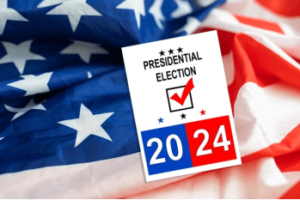
Gambling and betting have become huge global enterprises, with casinos, bookmakers, lotteries, and online betting sites generating over $500 billion in revenue every year. However, these lucrative industries have complex ethical implications that merit examination.
The Growth of Gambling Revenues
The expansion of legal gambling and loosening of regulations have led to massive revenue growth in recent years. The table below outlines global gambling revenue from 2016-2021.
Table 1: Global Gambling Revenues 2016-2021
| Year | Revenue |
| 2016 | $449 billion |
| 2017 | $465 billion |
| 2018 | $495 billion |
| 2019 | $513 billion |
| 2020 | $448 billion |
| 2021 | $516 billion |
Sources: Statista, UNLV Center for Gaming Research
It is clear that gambling and betting represent massive markets. However, some ethical questions arise regarding the nature of these industries.
Ethical Arguments Against Gambling
Critics argue there are several ethical issues with legalized gambling on numerous platforms, like PinoCasino, including:
- Precipitation of addictive behaviors
- Contribution to societal problems like crime, bankruptcy, and family breakdowns
- Exploitation of vulnerable groups and low-income households
- Normalization of risky financial behaviors
A study from Australia’s Southern Cross University found that around 15% of regular gamblers develop destructive addictive behaviors. There is also evidence linking problem gambling to issues like depression, substance abuse, and domestic violence.
Gambling addiction specialist John Mayer argues that the gambling industry relies on addictive mechanics, explaining that “casinos employ armies of psychologists to design machines that manipulate our psychology to keep us pulling the lever.”
Yet industry revenues continue to grow, thanks to aggressive lobbying and marketing from gambling companies. Critics argue this prioritizes profits over ethical considerations.
Arguments for Responsible Gambling Industry Regulation
However, others contend that it is possible to ethically regulate gambling industries. With reasonable guardrails and consumer protections, gambling can be an acceptable pastime for adults.
Gambling proponents argue that most individuals exhibit control and restraint in their betting behaviors. Problem vauhti kasino rates may be concerning, but the freedom and enjoyment of recreational betting should not be impeded for responsible gamblers.
There are also economic benefits of legal gambling industries, including job creation, tourism revenue that supports local economies, and tax dollars that fund public services. State-level gambling taxes in the U.S. alone total over $10 billion annually.
Striking an Ethical Balance
Ultimately, striking the right ethical balance relies upon effective regulations and responsible industry practices:
- Strict age limits and identity verification protect underage individuals from exposure and addiction.
- Transparency requirements ensure gambling odds and risks are clearly communicated to consumers.
- Caps on gambling volume/expenditures prevent individuals from losing dangerous sums.
- Self-exclusion options allow problem gamblers to voluntarily restrict their own casino or betting activities.
- Public education campaigns increase awareness of gambling addiction signs and treatment options.
- Industry funding of problem gambling treatment and research programs demonstrates ethical accountability.
By emphasizing consumer protections and prioritizing responsible gambling over revenue growth at any cost, legal betting and gambling can achieve an appropriate ethical balance. But achieving this relies upon conscientious regulations shaped by elected officials, not profit-driven industry executives.
As gambling critic Les Bernal summarizes, “This is about our society’s values. Do we want to exploit the weaknesses of the most vulnerable? Preying on human weakness for the sake of profit is not an ethical enterprise.”
Carefully-designed regulations and ethical industry practices are essential for the very existence of legal gambling. Without these safeguards, gambling likely does more societal harm than good. But implemented properly, ethical considerations need not be incompatible with recreational betting industries that enhance entertainment options for responsible adults.







